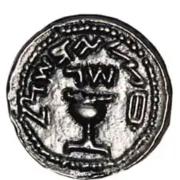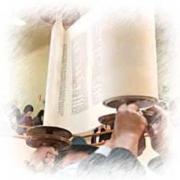The Wisdom of the Jewish Sage
It's very puzzling how it all played out. The nation of Israel was three days away from the Land of Israel—go in, and mission accomplished: you are in Israel, Moshe Rabbeinu is a Moshiach, build the Bet Hamikdash, and life is beautiful.
But suddenly, people ask for the spies to be sent to check out the land. So Hashem says to Moshe Rabbeinu in Parashat Shelach 13:2: "Send men to scout the land of Canaan, which I am giving to the Israelite people; send one man from each of their ancestral tribes, each one a leader among them." So Hashem asked for leaders to be sent from each tribe. To date, I have read many explanations on this pasuk. But with your permission, allow me to offer you yet another explanation.
So twelve people go together as a group. The Rabbis say that the ten men out of twelve concentrated on the negative aspects of the Land, since they had their own hidden agenda, and this was the reason for their downfall—the exile and the hardships we are facing today. The other two men - Calev ben Yefuneh and Yehoshua Bin Noun - have tried, but could not overcome the ten men's efforts to slander the Land.
But why did the ten men do that? What made them commit such a grievous sin?
To answer the above questions, we need to look at another story of a different leader—a story of Mordechay HaTzadik, a story of Purim. There's something in this story that can be viewed from a different angle.
Mordechay HaTzadik was a sage who spoke 70 languages and was part of the Great Assembly.
The Megilat Esther says: "Once on a party in front of other kings and his friends, King Achashverosh executed his wife Vashti in a fit of drunken rage. After he got sober, he regretted it, but then realized that he needed a new wife, one who was beautiful and charming. So the King sent his people throughout the towns to find a wife who would please him.
They gathered lots of ladies for the King to choose from, and this is when Mordechay HaTzadik approached Esther.
There are many explanations of who Esther was to him; one of them says she was his niece. So Mordechay HaTzadik asked her to become the King's wife. We don't realize what it meant to her - being married to a non-Jew, she forfeits all the mitzvot that a woman should perform, and she becomes part of the non-Jewish nation. To our dismay, she agrees...why would she do that? Let's try to understand this as well.
As time passes, there comes a man called Haman who didn't like Mordechay HaTzadik, and then he tries to annihilate the Jewish nation. He gets the King's permission to do just that. The King agrees, and Haman starts the process.
So, this is when Mordechay HaTzadik goes to Plan B.
Queen Esther invites Haman to the palace along with the King, where she exposes the evil plans of Haman. The King gets furious with Haman and gives an order to hang Haman and ten of his sons on the gallows. And the King's orders have been carried out.
Mordechay HaTzadik gets his community together for the attacks of the locals, since the decree was signed and put in motion by Haman, the Jews win the battle, and there's happiness and joy all over the towns in the Jewish neighborhoods."
Our Rabbis say that this story is not over yet. Mordechay HaTzadik becomes the King's advisor, thus ensuring that peace and security are guaranteed going forward for the Jews in those towns.
Queen Esther and King Achashverosh have a son. The son grows up and becomes the next King after his father's death. It is said that this new king, Cyrus, King of Persia, under the influence of his mother, allowed for the mass immigration of the Jews from Persia to the Land of Israel to rebuild the Second Temple. He sent the nation with gifts of gold and silver to make a fitting house for G-d.
Do you realize what has just happened? Did you see the wisdom of the Jewish sage?
Mordechay HaTzadik asked his niece to marry a non-Jewish King, to be a "spy," where she lost out on all the mitzvot she could have done and ended up living a non-Jewish lifestyle. But she was there for her nation in the darkest and trying times. She had saved the nation from the pogroms, overturning the decrees. Eventually, this led to the rebuilding of the Second Bet Hamikdash and the ingathering of the Jews back in Israel.
The wisdom of Mordechay HaTzadik lay in the clear assessment of the situation and the right moves to win the battle in the long run and make it good and comfortable —not for himself, but for the entire Jewish nation.
This is something the Meraglim, or the spies, lacked in the times of Moshe Rabbeinu. They were looking out for themselves, they were trying not to lose their positions, and were more concerned with their fate and not with the fate of the Jewish nation.
But why? Why was Mordechay HaTzadik able to make the right choices, and the spies failed at it? Because Mordechay HaTzadik had the wisdom of a Jewish sage.
How can a person acquire wisdom? There's a pasuk on how to acquire wisdom that goes like this: Reshit Chochmah Yirat Hashem — The beginning of wisdom is fear of G-d. If one wants wisdom, he must learn to fear G-d; he must fear G-d; without this, he will not have wisdom - he will transgress everything under the sun, will make people around him suffer, for which eventually he will bring judgment upon himself.
The ten spies who went out to spy out the Land came back with a bad report—because they lacked one thing: a Fear of G-d. They did things to fit their own agenda, and they spoke to support their own story. They were worried about their positions, about what they had, and about how their lives would unfold, without giving a second thought to the fate of the nation, the people they led, and the task they were entrusted with. Eventually, it led the nation to wander for forty years in the desert, and the death of that older generation.
The Rabbis say that the ten spies were fixing the sin of the ten sons of Yaakov Avinu that sinned against Yosef HaTzadik, but they failed. So the rabbis instituted that there should be ten men whenever they gather to pray daily prayers—a miniyan—so that the gathering of ten people, or the miniyan, would have to fix the sin of the ten spies.
A prayer in the minyan is the search for the right meaning, correction, and unification of the goals, desires, and motivation to serve the One and Only G-d, where it is done in unity and oneness of spirit or achdut, just like it was done back in the day when we received the Torah on Mount Sinai.
Why did Hashem hold them liable for the lack of Fear of G-d? Because in Talmud Berachot 33b it says: "Hakol Bidey Shamayim Chutz Miyirat Shamayim," which means "Everything is in the Hands of G-d except for the Fear of Heaven / G-d."
That's why Hashem has not given us the Fear of G-d - because He wants to see us work for it. It is attainable and available, within our reach, and definitely something that should NOT be ignored or postponed for later years.
With everything that we have been through lately - virus and us being out of the shules and having no miniyanim - it makes one wonder if we have been making the mistakes of the ten spies, being too selfish with no concern for the nation, while forgetting the most important thing that we must possess and work on - The Fear of G-d.
Fortunately, we have been granted the opportunity to return to our shules, where we have minyanim, and are allowed to pray together. Let's step up to the expectations that Hashem has for us. The meraglim did what they did, and now it is on our shoulders and our responsibility to fix the wrong that was done so we can get to the next phase of our redemption.
It is hard to acquire the Fear of G-d, but it is a worthy cause to invest our life into!!
Shmuel Katanov
















